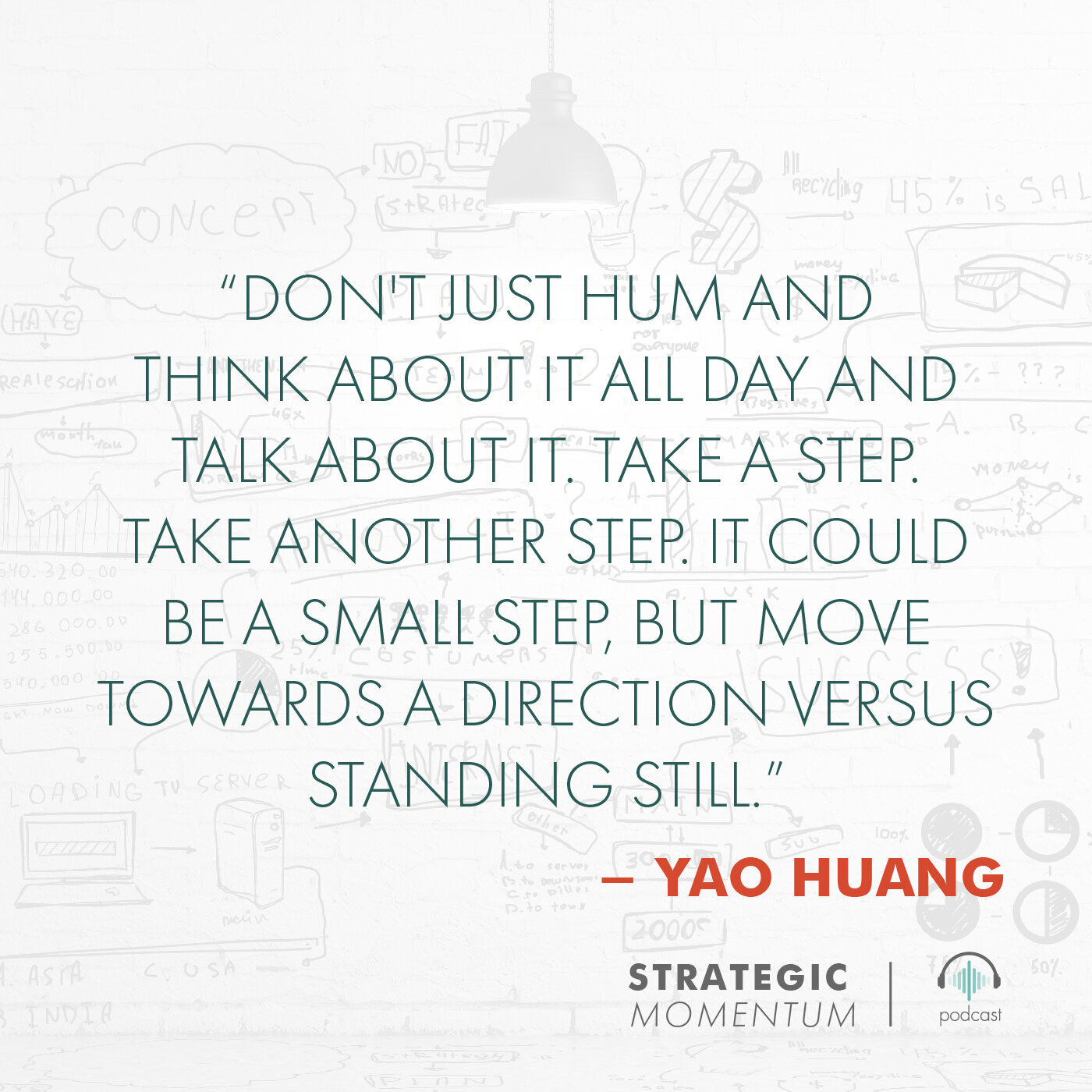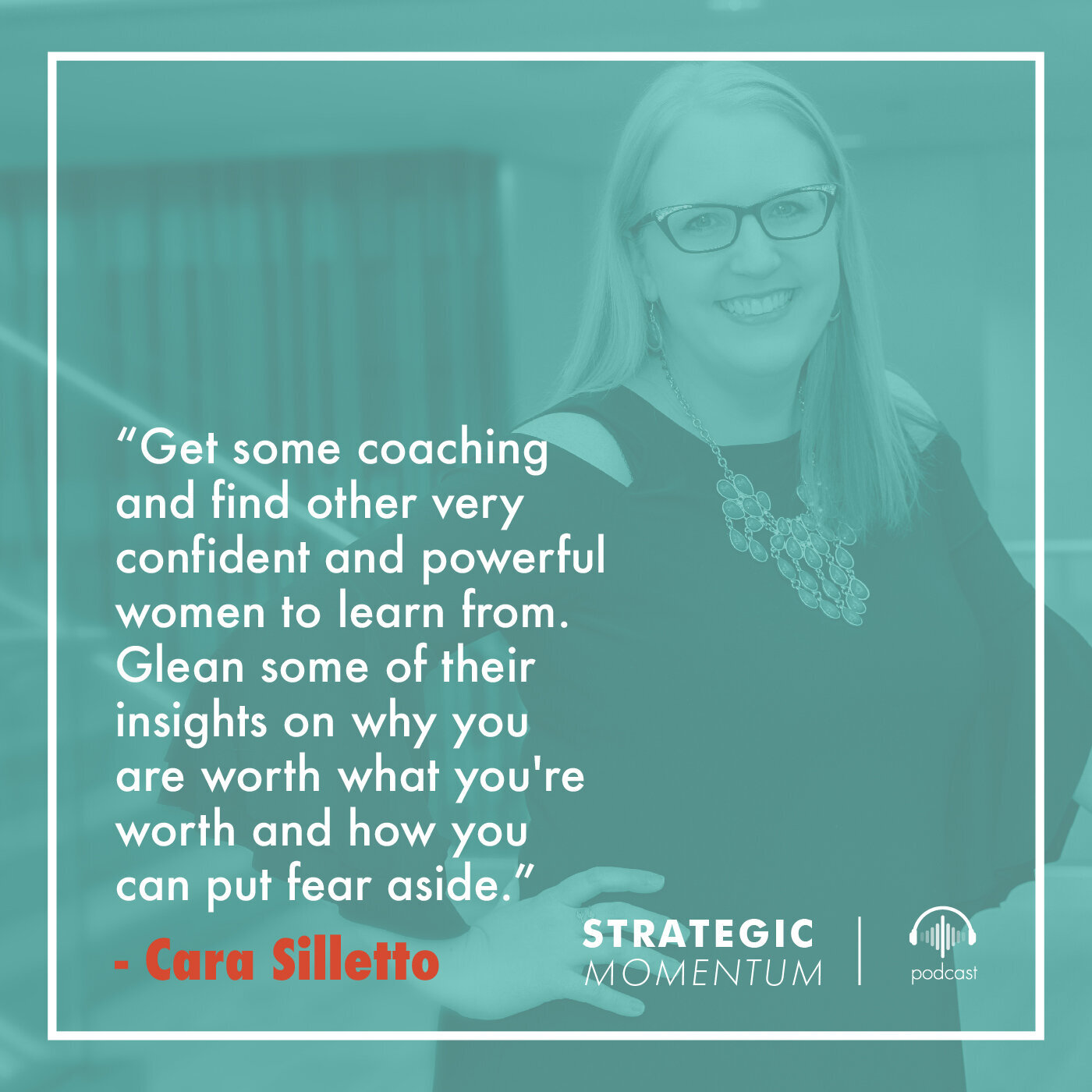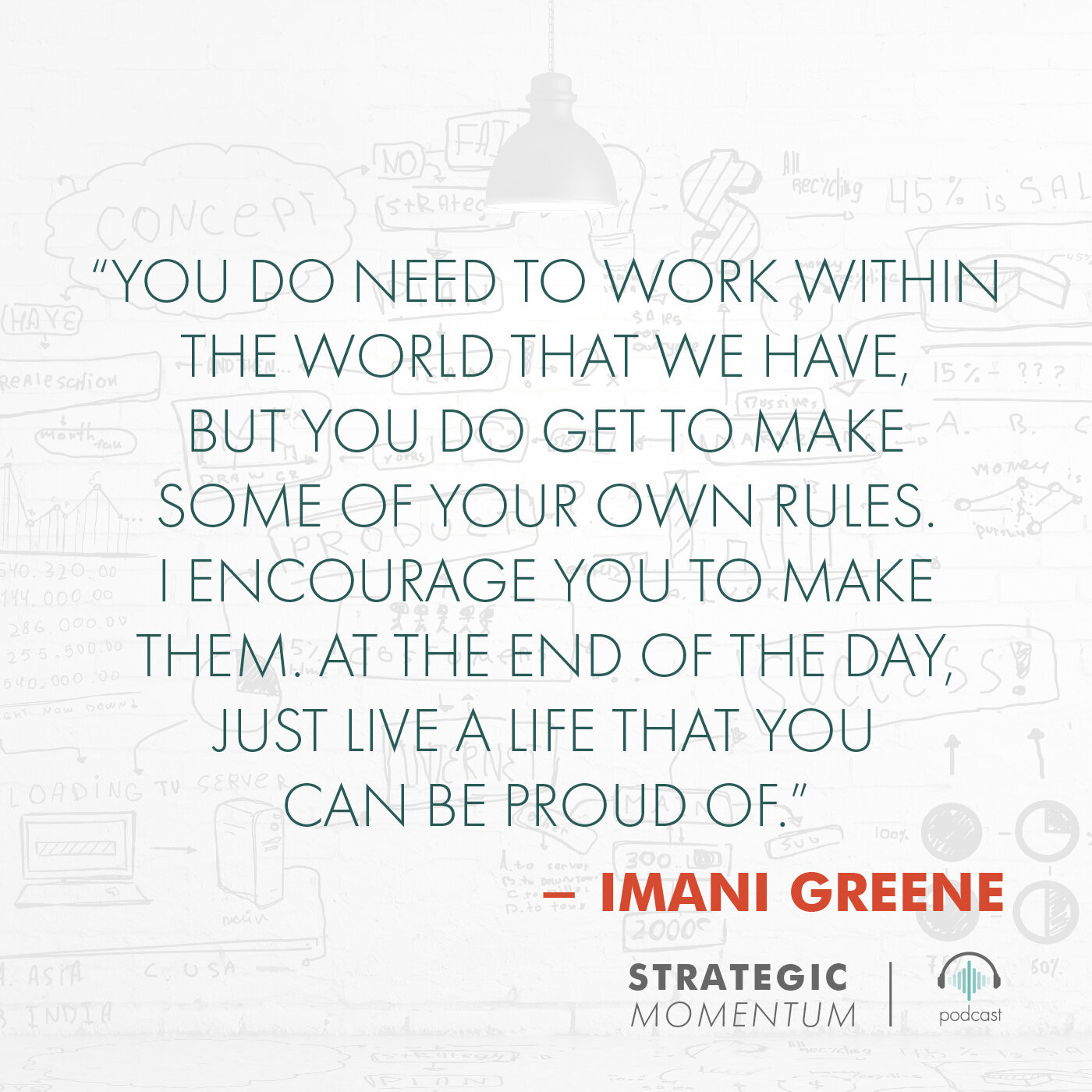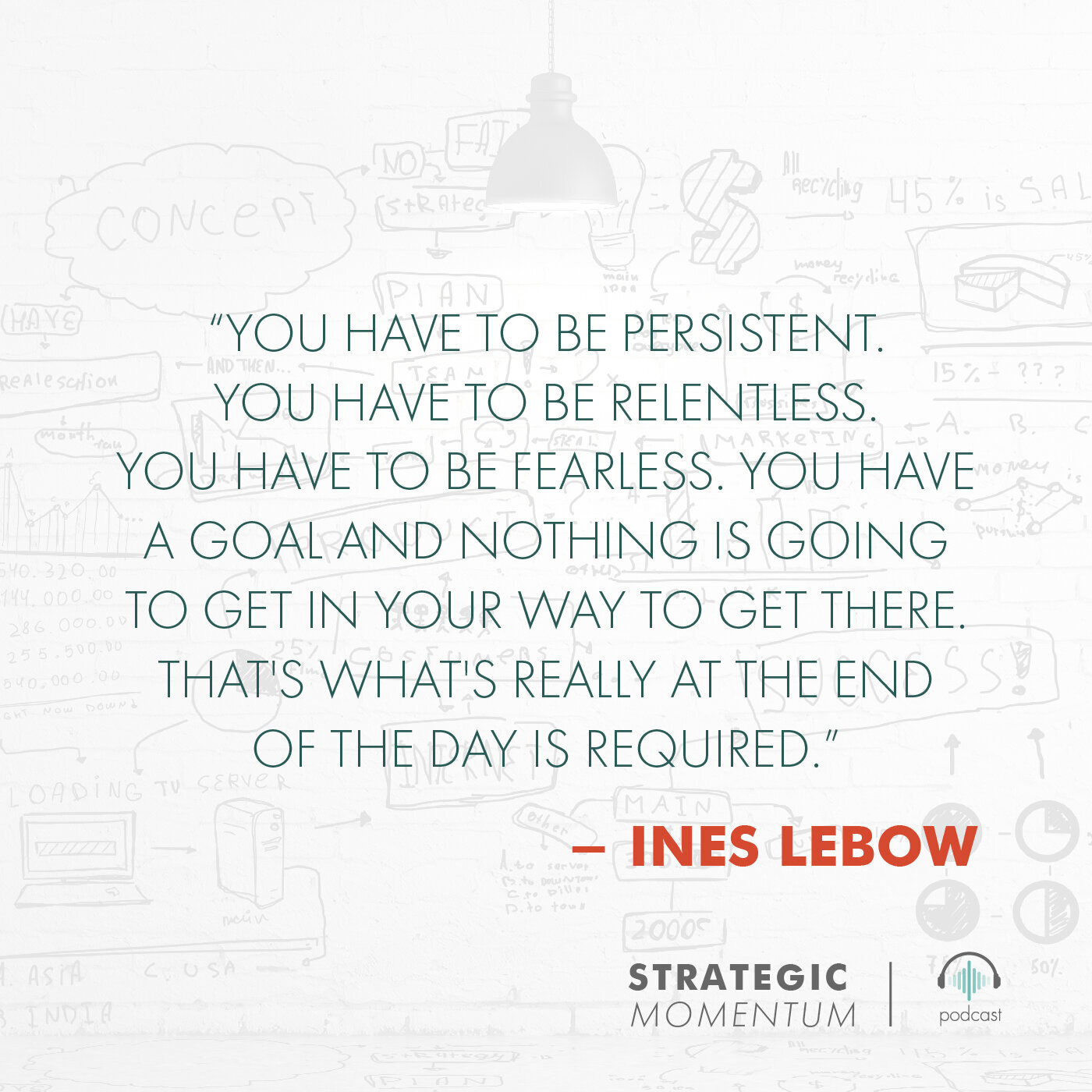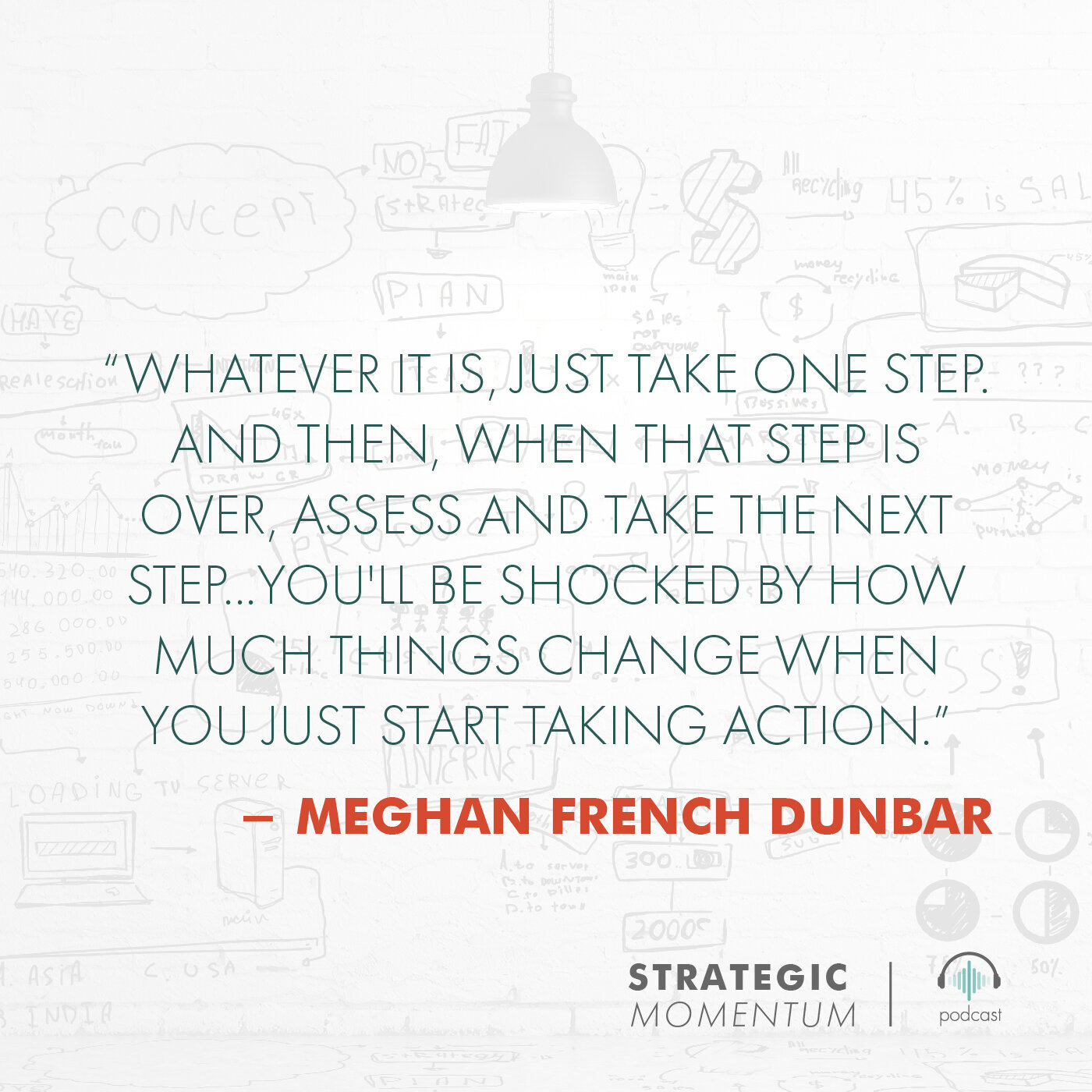Ep. 59 - Overcoming Impostor Syndrome and Knowing Your Worth: Insights & Advice from Female Business Leaders
Find Us Wherever You Listen To Podcasts
This year, Forbes published its list of the 100 Most Innovative Leaders in business. Sadly, only one female executive made the list.
This fact highlights the nationwide problem that women are significantly underrepresented in business leadership. Despite nearly 100 years of political and economic progress, women hold only 25% of C-Suite positions in the top 1,000 companies, and only 6% of CEO positions.
So what are the biggest barriers keeping women from rising up the corporate ladder?
We’ve had a number of female executives and entrepreneurs on this show who’ve shared their perspective as a business leader and as a woman in the workforce. In this episode, eight of these women discuss some of the biggest barriers they’ve collectively seen that inhibit women from reaching their full potential—plus these accomplished guests provide tips and advice for breaking through that inertia to create the momentum women are looking for in their professional and even personal life.
In this episode, you’ll learn:
What are the biggest internal challenges that keep women from achieving higher positions in corporations
How to rewire your brain to think differently about your place in the workforce
The top four things you need to truly silence your inner and outer critics: work ethic, self-advocacy, mentors, and mission
Impostor Syndrome: The Inner Critic Who Says “You Can’t”
There are countless external factors that limit women from achieving parity in the workplace and being their authentic selves.
Yet, when asked about the biggest hurdle keeping women from reaching their full growth potential, many of my guests cited self-imposed challenges. Most notably, they pin-pointed impostor syndrome and a lack of confidence.
“A lot more women than men struggle with the confidence to position themselves for success… I'll talk to women about, ‘Well, have you asked to work from home, or have you demanded that you get paid more?’ And they'll say, "Well, no. I just feel like my boss should recognize that, and they should just pay me more because they noticed.’” - Cara Silletto
“I notice a lot of just the way women kind of downplay their ideas, or they automatically say, like, ‘I'm sorry, but I have a question.’... It's like we're so afraid as a group to be seen as having stupid ideas or be seen in a negative way.” - Amanda Thomas
“It’s Impostor syndrome... They think they can't. There's all these internal thoughts running through their heads preventing them. It's all internal.” - Yao Huang
And for many, it’s about trying to fit into a mold that expected of them, and not stepping out of line because they fear rejection.
“Instead of really knowing who they are and focus on what they can bring to the table, they focus on, ‘How do I fit this mold of what I need to be?’” - Bhavna Dave
Further, women of color face particular challenges when it comes to performing in a way that they feel is expected. It's common to act as an entirely different person at work than you are in real life because of what you think is expected of you.
Self-Advocacy, Finding Mentors and Defining Your True Goals
Given that most of these challenges are internal, it takes persistence and learning to break through.
Even though she reached the C-Suite, Ines Lebow faced countless challenges working up the career ladder. Along the way, she learned that, as a female in business, your performance, regardless of the circumstances you may be in, gives you power and credibility — and you always have to be your own advocate.
But speaking up for yourself is obviously easier said than done, and you may need a more piece-wise approach for getting a seat at the table. Yao Huang says your work should be your biggest advocate, and then you can take small steps to make yourself heard, doing risk assessments along the way.
The network of mentors and colleagues who guide you along the way are also key to building this confidence, and they don’t all have to be women.
“[My] mentors were not always black women. They were white men, they were Asian, they were Hispanic, they were everything. When I realized that I was coming across with an artificial overlay, it allowed me to step back, and then be a little bit smarter about what I was taking away from my mentors. And that wisdom made me more comfortable in my skin.” - Imani Greene
Ultimately, what these women advise above all else is to have a true sense of self—know who you are, what you want, and what are willing to do to achieve your goals. Because at the end of the day, forward movement is limited without clear direction.
Key Takeaways:
Job Advancement
Use your work (and the outcomes of your work) to establish credibility.
“You have to do your job and you need to go above and beyond the call of duty to get that job done. That gives you power.”Pursue high-visibility jobs. Go after big projects or projects that you know you would excel at. Don’t be inhibited or intimidated, and don’t sign up for those non-promotable tasks. At the end of the day, “people aren't going to turn you down if you want more work.”
Become that expert/thought leader in your field. Express your own opinion about the industry and space that you have obtained knowledge in because it doesn’t need to be what everyone else is saying.
Speak up and ask for what you want because you can't sit back and wait for what you want to come to your way.
Relationships
Focus on making friends and broadening your network. Relationships can open doors to opportunities that will help you climb the ladder.
Try not to see other women succeeding as competition. There is enough success for everyone and women need to start building each other up instead of tearing other people down.
Control & Risk-Taking
Learn to work within the system you’re in (as long as it works for you) or create a new system. You do need to navigate the world that exists, but you can make your own rules.
Remember that not everything goes right. You could actually fail when you do speak up or take on a bigger challenge. You have to self-assess the situation and understand what your fallback plan is if things don't work out. Knowing that you have a plan B may make taking the risk easier.
Mentoring & Coaching
Don’t be afraid to reach out to female leaders you respect inside (or even outside) of your organization. Be bold and ask them to have coffee with you so you can talk to them about what it took to get to their position.
Look for multiple mentors and don’t limit yourself to females only. Seek diversity in your mentors so that you can get advice from a variety of perspectives.
Consider professional coaching. Find other very confident and powerful women to learn from and to glean some of their insights on why you are worth what you're worth and how you can put fear aside.
Be a mentor or coach to other women. Try to champion other women and their daughters, and be a sponsor when you can.
Most importantly, don’t isolate. Women often become as sick as their secrets; talk to each other, ask for support, and be proactive in creating judgement-free spaces.
Personal Development & Confidence
Practice public speaking to help build confidence and develop your personal brand. Being able to present your ideas on stage is a critical skill in development for your life and in creating more opportunities.
Don’t wait for what you want to come to you. Know what is it you want to with your life; determine what is important, but whatever you choose, you have to want it with your heart and soul.
Plan out what your goals or objectives may be. Then chart that course, going back to things that are inherent to you, testing and learning your way into what may really align with what it is that ultimately fits.
You have to be able to succeed in a world in which you are an anomaly. You may have to adapt some aspects of yourself (like your dress and your speech) to be taken seriously, but you should still take pride in what you have to offer.
At the end of the day, live a life that you can be proud of.
Resources:
Amanda Thomas: Instagram
Bhavna Dave: Linkedin
Cara Silletto: Linkedin
Imani Greene: Linkedin
Ines Lebow: LinkedIn
Julie Kantor: LinkedIn
Meghan French Dunbar: Linkedin
Yao Huang: Linkedin
See Also:
Find us on Social Media:
FACEBOOK: Strategic Momentum Podcast
INSTAGRAM: @strategicmomentum
TWITTER: @flywheelassoc
LINKEDIN: Flywheel Associates
YOUTUBE: Flywheel Associates
PINTEREST: Flywheel Associates
Subscribe to the Strategic Momentum podcast:









